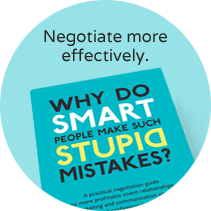Insights

Story-telling that wins business
Maurice Saatchi was presenting an ad campaign to a client and the client then started suggesting various additions to make to the ad such as their store list, opening times, customer service policy etc. Maurice picked up a handful of sugar lumps and said “catch these”! The client struggled to catch any of the sugar lumps. Maurice then threw one sugar lump saying “catch this”. The client caught the one lump and agreed to run the ad as it stood without the additions.
Stories are one of the most powerful ways to persuade someone and I believe aren’t used enough in sales presentations and agency pitches. A story is a fact wrapped in an emotion that can compel others to take action. We are wired to listen to stories and they have universal appeal. It lets the listener decide for themselves and is a soft sell. The listener doesn’t feel ‘sold to’. Stories allow reflection and connect with a client often on an emotional level. People also remember stories long after the facts they were told.
How can they help you win business?
I have been working with several clients in my workshop “Facts Tell, stories Sell” to uncover and craft their business stories. Great business stories can differentiate your business from competitors and can inspire and create a powerful vision for the client in their mind’s eye. You can use them for new business presentations, add colour to case studies, tell existing clients to consider other parts of your business, employee attraction stories and to warn clients to the danger of doing nothing or taking the wrong course of action!
What makes a great story? Knowing the right story to tell and telling the story right are crucial. Ideally it should be short and punchy whilst painting necessary detail. Be clear on your purpose of telling a story. I find the best stories are those which are true and resonate with the audience – typically those which happened to me. Stories about success and failure are often powerful. Mistakes and their learnings are typically good sources as they have an honesty and authenticity which can build trust. Without trust there will be no sale.
What are the typical mistakes in stories and story-telling? Cliche stories and telling other people’s stories are often a mistake. Rambling unnecessarily will bore the listener and lose their interest. There is a fine balance between too much and too little detail. Don’t start with cliches such as “Once upon a time…” or “Let me tell you a story…” Lack of clarity will spoil a story where the audience can’t see the point. When shouldn’t you tell a story? If your client is impatient or tight on time it could be frustrating for them to listen to your story.
There are many different story structures which I teach on my “Facts tell, Stories sell” workshop. One of the simplest is Situation, Complication, Resolution. You set up a situation that the ‘hero’ faces which resonates with the listener. There is then a complication, challenges or problem, often one is familiar the listener. There is then a resolution, ideally unexpected, to the problem. I show my clients where to find stories, potential themes and how to craft and finesse the language and journey of the story.
The Guardian newspaper ran a wonderful TV ad campaign some years ago showing the same situation from different perspectives. Initially you see a skinhead attempting to steal a businessman’s briefcase. The next perspective shows the skinhead saving the businessman from being crushed by falling building materials above him. In a few seconds the skinhead villain becomes the hero. A great way to demonstrate how the Guardian gives its readers a different and truer perspective on news stories.
Several leading CEOs are famous for their story-telling within their organisation to influence and develop the culture. Examples are Herb Kelleher, CEO of Southwest Airlines, Lou Gerstner, when CEO of IBM and Fuji Mitarai, chairman of Cannon who asked each senior manager to submit a story from the business with their annual business plan.
I have found within my “Facts Tell, Stories Sell” workshop there are usually wonderful untapped stories – a goldmine of business stories to differentiate, to demonstrate and to persuade clients and prospects. Many years ago there was a TV series called “Tales of the unexpected” – what unexpected stories are waiting to be discovered in your organisation? Start building your collection of business stories
Three of my favourite business stories are about Tesco’s previous ad agency, a fire-alarm during a workshop which was a blessing in disguise and the pitch for Jaguar’s advertising business. Ask me to tell you about them when I next see you!
no comments
